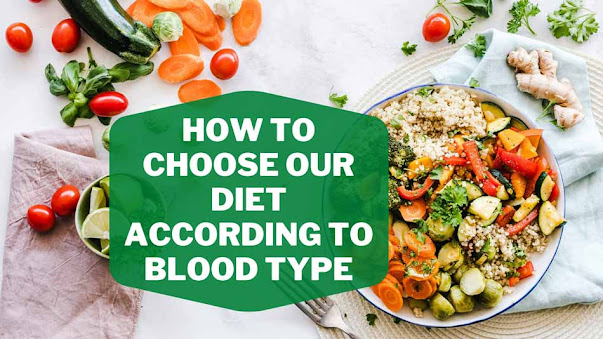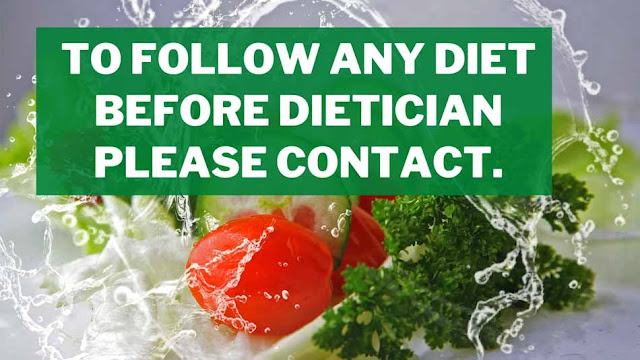How to choose our diet according to blood type
The diet also sets different people in different blood groups. For this reason, it is seen that the same diet is beneficial for some people and harmful for some people. Therefore, before taking a diet, experts should be consulted.
Many times it is seen that no matter how good some people are given to eat, their body does not feel it. There can be many reasons for this. According to the blood group, not giving diet can also be one of the reasons. Diet under diet, whether to increase weight or to reduce or to control a disease, in all these circumstances, the age of the patient, Length, sex and activity of the patient have to be taken care of. It is only by keeping these points in mind that the quantity of electrons and macronutrients is decided. In such a situation, if food is given to the person after taking care of the blood group, then it results in more good results.
Effect of blood type
Every person’s body is biochemically and metabolically different from each other. For this reason, if the same diet is beneficial to someone, it can be harmful to another person, there are many chemical reactions between our blood and food. These chemical reactions depend to a great extent on our heredity. If we eat the food that is suitable for our blood group, then many diseases can be avoided.
Note: – All these remedies have been told by making a normal and healthy person the basis. Depending on the age, weight etc. of the patient, their diet may also vary. So before following any diet, please contact the dietician.
Type AB + The people of this group are mixed in form of A and B groups. These people should reduce the use of things like mutton, kidney beans, corn etc. If you want to lose weight, sea food, dairy products, tofu, pineapple etc. can prove to be very beneficial for them.
Type A People of this group are called vegetarian. It is generally seen that vegetarian food is more suitable for people of this blood group. Drinking too much milk is not beneficial for these people. Green vegetables, fruits, soybeans, tofu, walnuts, pulses are very beneficial for them.
Type O + people in this blood group are called non-vegetarians. It is good to give a small amount of protein to the people of this group. They easily digest meat and fish. These people should reduce their intake of wheat, corn and sweet
Type B + people of this group have much better digestive power. So people of this group are omnivores, their immune system is also better than other groups. Milk and egg are more beneficial for these people than chicken. They should reduce the use of sesame, wheat, corn etc.
Our diet is a combination of seven things
Balanced food plays a very important role in keeping the heart healthy, but ignorantly many times we consume such food which increases the chances of heart disease increasing many times, changing the habits related to food over the years. Can be difficult, but not impossible. A little effort and restraint will help us to avoid heart disease. Energy is called ‘calories’ for the body to function smoothly, the need and loss of which vary from person to person. Normally 0.5 calories / minute in sleep, one to 1.5 calories / minute in sitting, two calories / minute in standing, three-four calories / minute in slow walking, five-six calories / minute in fast walking, 7.9 in jogging Calories / minute and running – 10 – 12 calories / minute energy loss.
Calories The body needs calories according to age, sex, length, style and disease etc. In today’s machine age, only 1400-1600 calories are consumed daily by consuming energy and nutrients.
Learn Calorie Calculation
Among the dishes that are made all over the world, there are mainly ‘seven’ things, in which different amounts and combinations are used.
They are seven things
Carbohydrate, Protein, Fat, Vitamins, Minerals, Fiber, Water. A balanced diet means about 70% calories from carbohydrates, 20% from protein and 10% from fat. High cholesterol, high blood pressure and obesity are mainly responsible for heart disease. All these reasons can be avoided by taking the right quantity and quality food. | You should consult your dietician about this
How to choose food
Fruits and vegetables
These two are an integral and important part of the heart healthy food. They contain abundant fiber, vitamins, minerals. Fat, calories, sodium and cholesterol are low. Select fruits and vegetables of five or more different colors.
Grain
50% of the grain taken throughout the day should be whole grains. White bread, pasta, maida, semolina etc. can increase weight. Oats, brown bread, flour including bran, brown rice etc. are sources of fiber, vitamins, minerals, complex carbohydrates. Avoid foods made with cheese, butter, ghee ..
Protein
Meats, eggs, fish, peas, nuts, adiprotein, vitamin ‘B’, are rich in iron and minerals. Do not take too much fat protein such as organic meat (kidney, liver, hot dogs etc.). Try baking, boiling, roasting, steaming, cooking with microwave method and not deep frying. Dairy products are good sources of calcium, niacin, riboflavin, vitamin A and D. Drink only 1% fat milk.
Fat, oil and cholesterol
Saturated or trans fat foods jam the heart tubes. Poly or mono unsaturated fats, which come from plants and seeds, are beneficial for the body and body. Avoid yellow cholesterol in the yellow part of the body.

